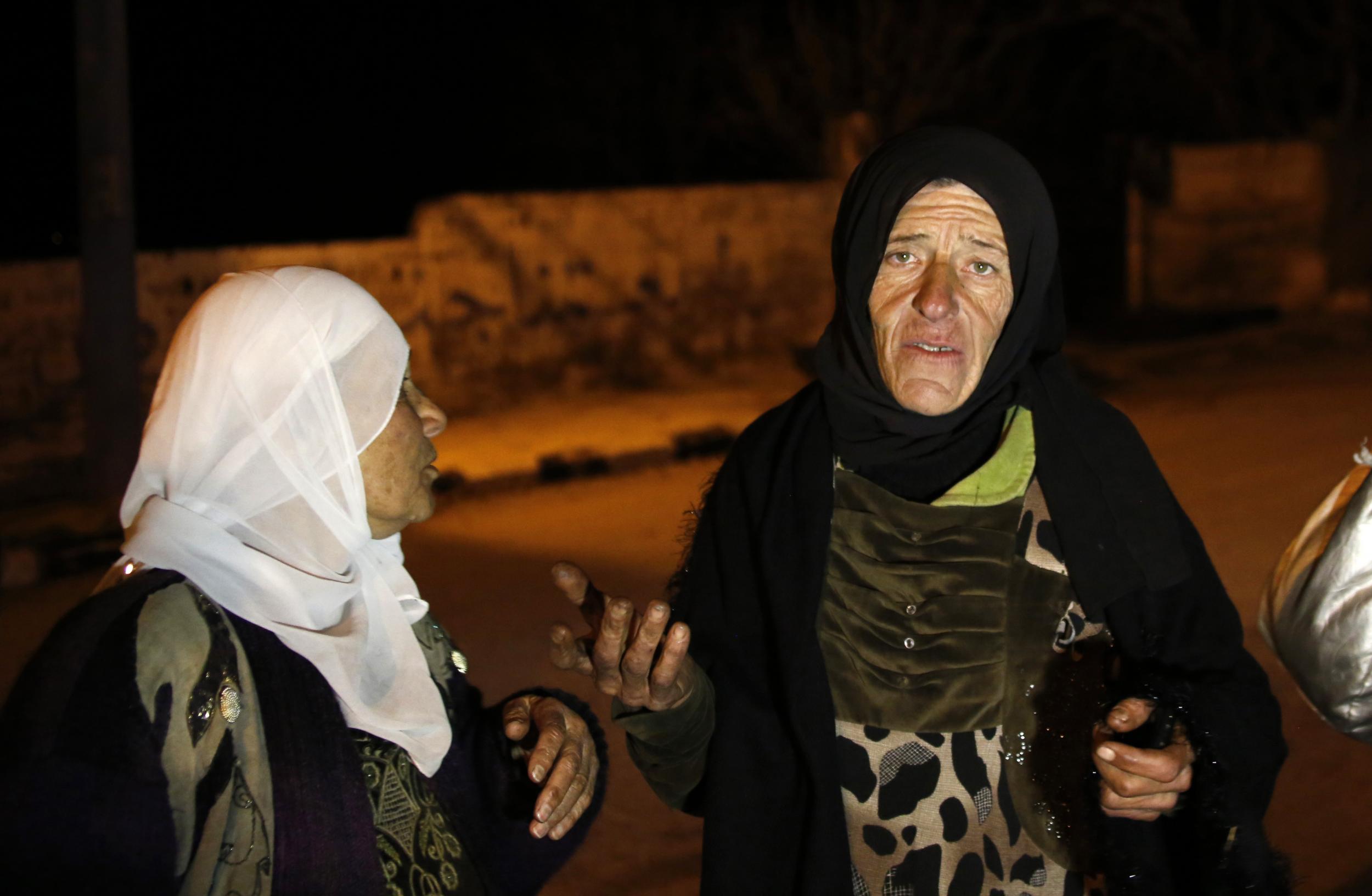This is the brutal effect of war on the women of Syria
Displacement, sexual assault, kidnap, house arrest and political exclusion are all daily occurrences for Syria’s female population

Your support helps us to tell the story
From reproductive rights to climate change to Big Tech, The Independent is on the ground when the story is developing. Whether it's investigating the financials of Elon Musk's pro-Trump PAC or producing our latest documentary, 'The A Word', which shines a light on the American women fighting for reproductive rights, we know how important it is to parse out the facts from the messaging.
At such a critical moment in US history, we need reporters on the ground. Your donation allows us to keep sending journalists to speak to both sides of the story.
The Independent is trusted by Americans across the entire political spectrum. And unlike many other quality news outlets, we choose not to lock Americans out of our reporting and analysis with paywalls. We believe quality journalism should be available to everyone, paid for by those who can afford it.
Your support makes all the difference.As the war in Syria approaches its fifth year, the toll it has taken on the country’s women has been particularly brutal.
Four million Syrians have sought refuge abroad, while a further 7.6 million have been displaced internally. Though the refugees reaching European shores are more often than not men, the humanitarian crisis affects far more women.
With men largely either engaged in fighting or prevented from leaving conflict zones, the majority of displaced Syrians are women. Fleeing the war does not mean that they have escaped violence and degradation.
Women must pass through areas controlled by armed groups, negotiating checkpoints where rape and sexual assault are commonplace.
When they arrive in poorly-resourced camps, they face enormous difficulties in accessing basic services - particularly reproductive healthcare.
Displacement also amplifies the economic and security factors that drive early marriage, leaving girls even more vulnerable to this form of abuse, and seeing the rate of child marriage among Syrians in Jordan doubling between 2011 and 2012.
Women who remain in conflict areas face their own particular set of threats. UN investigators recently reported that women are increasingly being targeted in kidnappings. Where fighters have failed to defeat their other factions militarily, they have instead abducted their opponents’ female relatives as a means to blackmail combatants into surrendering.
Much of Syria remains under the control of extremists like Isis and al-Nusra. The atrocities of these groups are well documented, but a more pernicious aspect of life under their rule is the repression that seeps into women’s daily life.
Prior to the war, state secularism meant that women enjoyed a degree of personal freedom in their dress, but in extremist-controlled areas they now are forced to cover their faces. Even then women are not permitted to leave their homes without being escorted by a male relative. With thousands of men away fighting, wounded or killed, this sees many women effectively living under house arrest.
An estimated 250,000 Syrians have been killed in the war, the vast majority men. The slaughter has left thousands of women as head of their household, yet even with greater responsibilities falling on Syrian women they remain drastically underrepresented at the top table of diplomatic negotiations. When Syrian opposition groups discussed the peace process in Riyadh, only ten of 108 participants were women.
Talks in which women are underrepresented almost inevitably result in outcomes that do not take account of women’s needs. The Riyadh conference recommended the creation of a 34-member High Negotiations Committee, which had only two places for women, and called for women’s representation in transitional institutions to be just 25 per cent.
The failure to include women and take them seriously adds further injustice on Syria’s women.
Hibaaq Osman is the founder and CEO of Karama, an NGO that seeks to end violence against women and promote women’s participation across the Arab region. A member of UN Women's Global Civil Society Advisory Group, she has been named as one of the World's 500 Most Influential Muslims.
Join our commenting forum
Join thought-provoking conversations, follow other Independent readers and see their replies
Comments